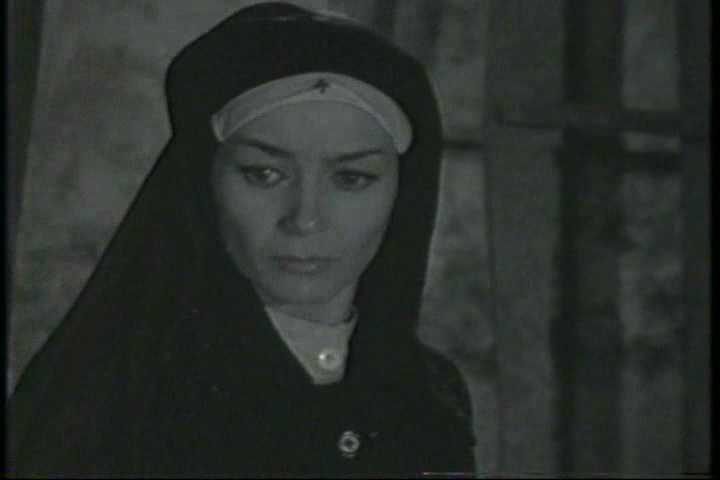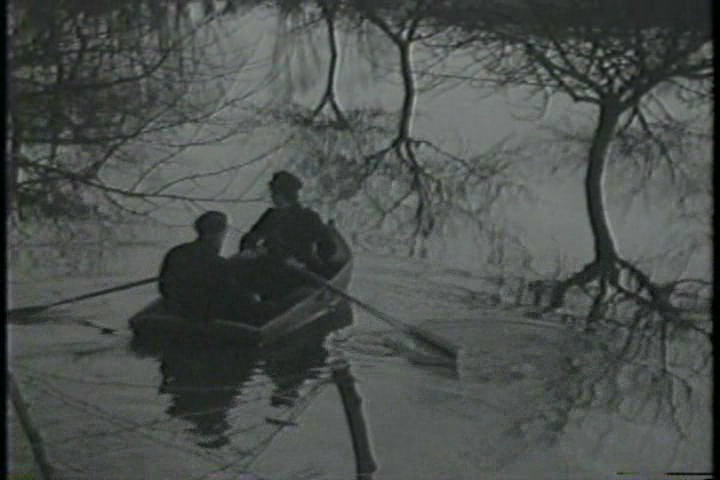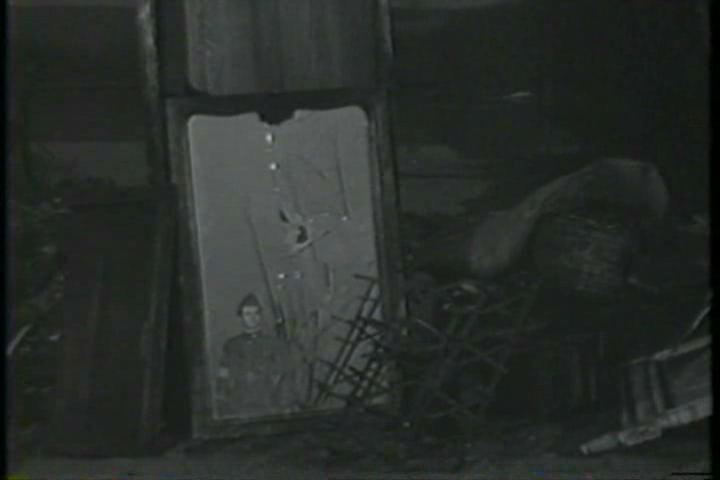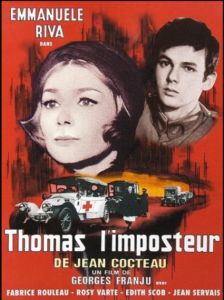|
Genres, Themes, Actors, and Directors:
- French Films
- Georges Franju Films
- Mistaken Identities
- World War One
Review:
As I noted in my review of Therese Desqueyroux (1962), French director Georges Franju only made a handful of films seen in the United States — and among these, his undisputed masterpiece is Eyes Without a Face (1960), a haunting classic of psychological horror. Unfortunately, neither Therese… nor this later literary adaptation (of a 1923 novel by surrealist Jean Cocteau) are nearly as successful. According to Wikipedia’s article on the director, Franju himself noted that he did “not have the story writing gift”, instead preferring to focus on the visuals of a film — and to that end, Thomas… is certainly arresting throughout. But ultimately, most films are only as captivating as the stories they attempt to tell, and this one — about a young man so desperate to see action on the front that he adopts a false identity — should be much more compelling than it is. While this is ostensibly Thomas’s story (per the title), the screenplay primarily focuses on Riva’s do-gooding princess — an intriguing character (nicely played by Riva) who we wouldn’t mind learning even more about. Unfortunately, the film’s events — Riva’s dedication to helping wounded soldiers access medical care; her tentative romance with an insistent newspaper editor (Jean Servais); Thomas’s budding romance with Dares — fail to cohere or leave a lasting impression, and by the film’s end, we wonder what the point of it all was, exactly.
Redeeming Qualities and Moments:
- Emmanuelle Riva as the Princesse de Bormes

- Some memorable imagery


- Georges Auric’s musical score
Must See?
No; this one is only must-see for Franju completists.
Links:
|




One thought on “Thomas the Imposter (1964)”
Not a must – and rather in agreement, so not much to add.
First viewing.
It’s true that this strangely lightweight story (for a wartime tale it has little sense of urgency) suffers mostly from a split-focus. We don’t really know where to put our attention. The viewer isn’t particularly guided anywhere. Overall, the storytelling has a tentative softness about it – as if the writer were just scratching the surface of characters and situation in a first draft. (The love angle between the protagonist and the young girl, in particular, is little but bland; the young man hardly seems interested.) I wouldn’t even call the film visually “arresting throughout”.
The film seems to have gotten made because it had some big names connected with it (before and behind the camera). But it’s more than a bit snooze-worthy.